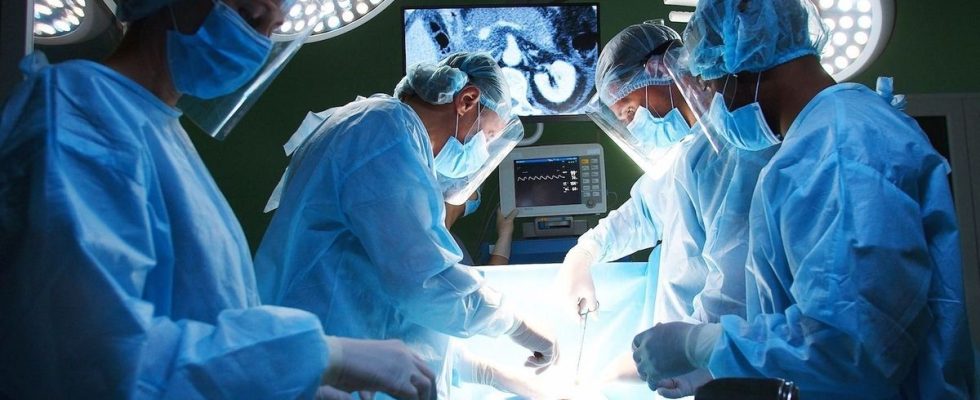Published on
Updated
Reading 3 min.
This is a first that took place in January: a heart was successfully transplanted after crossing the Atlantic! From the Antilles to Paris, the graft traveled more than twelve hours by plane using a cardiac perfusion machine developed by the Swedish company Xvivo. New hope for people waiting for a heart transplant.
Transatlantic transplantation: a world first
The heart transplant took place at the Pitié-Salpêtrière hospital (Paris) in January 2024. The donor, located in the French West Indies, was a 48-year-old man, declared brain dead three days after an intracranial hemorrhage. Echocardiography and coronary angiography were normal.
The donor heart was removed according to routine procedures and 16 minutes after the aortic crossing, hypothermic and oxygenated perfusion was started with the XVIVO Heart Assist Transport system, developed by the Swedish firm. The heart was transported to Paris in the cabin of a commercial flight. The preservation (12 h 6 min) and perfusion (10 h 32 min) took place without incident, despite strong turbulence.
In Paris, a 70-year-old man suffering from end-stage ischemic cardiomyopathy and chronic kidney failure was able to benefit from the graft. After transplantation, the heart immediately recovered normal biventricular function without any graft dysfunction. The patient was able to leave the hospital 30 days later.
Distance and transportation time are no longer obstacles
This patient is enrolled in a PEGASE clinical trial, which aims to evaluate the feasibility of preserving a heart with a hypothermic ex vivo perfusion system over an extended period and recovering satisfactory cardiac function. Around twenty patients must be included in the long term.
[Special transport] For the first time, a heart which had been transported in the cabin of an #Air France flight was successfully transplanted after 12 hours of preservation. This marks a substantial advancement in organ transplantation.
— Air France Newsroom (@AFnewsroom) March 26, 2024
This is the first time a donated heart has crossed the Atlantic by plane, traveling a distance of 6,750 km from the French West Indies to Paris, a previously unimaginable feat in organ transplantation. “The success achieved in this case, in which distance and transport time are no longer limiting factors, has the potential to redefine the landscape of heart transplantation with unlimited geographic supply and reduced time constraints.” enthuse Professors Guillaume Lebreton and Pascal Leprince, in a letter published by the prestigious medical journal The Lancet.
Towards a reorganization of heart transplants?
Indeed, organs need oxygen to function and survive. In the event of a sample, the heart (normally very demanding of oxygen) is cooled, as if put into hibernation so that it no longer consumes a lot of oxygen. This technique, proven for several years, allows you to last up to 4 hours in a cooler. A deadline which remains extremely short given the conditions to be met (donation, collection, transport to a transplant center, transplant).
The implementation of the continuous perfusion system of the heart with blood, oxygen and different products by the company Xvivo could be a game-changer. The time limit then increases to 6 or even 12 hours of storage for the removed hearts.
New hope for patients waiting for transplants
Beyond technical performance, this machine could revolutionize the organization of heart transplants. Hearts could be harvested by local teams and then transferred to other regions by train or plane after being put into this machine. Ultimately, transplants that can be carried out in better conditions, with better planning of interventions and operations that can become a reality in areas that previously required patient transport.
The technique remains expensive at around 30,000 euros but this price must be evaluated in light of the transport costs saved (helicopters, jet, etc.) and the gain for patients waiting for grafts.
Even if, on a European scale, France is very well located, the number of heart transplants (411 in 2022) remains insufficient, since it represents approximately 2 candidates for 1 single graft.
